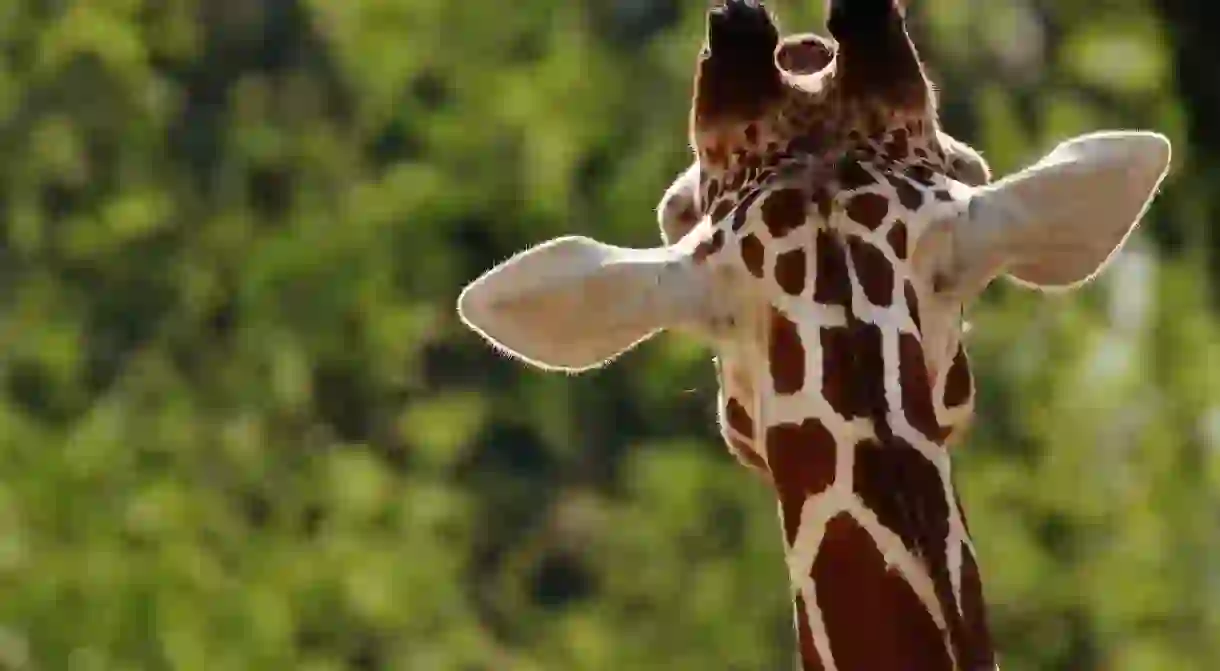Going to the Zoo, Zoo, Zoo in Germany

Whether travelling with kids or a sucker for animals yourself, Germany is a great place to spend a day at the zoo. Nearly all cities of any reasonable size have one, so they’re not difficult to find and one – in Leipzig – was voted second best zoo in all of Europe in 2016. If animals are on your itinerary, here are 10 safari parks and zoos to visit when you’re on holiday in Germany.
Serengeti Safari Park
Park, School, Zoo
This old-school safari park, situated halfway between Hannover and Bremen, is divided into four areas: animal world, monkey world, water world and theme park world. In animal world, you can drive through in your car and the animals come to you. Or they stay under the tree and nap because it’s way too hot for that. Just be sure to get no deductible insurance if you take your rental. Monkeys love to pick the shiny bits off the cars!
There are around 1500 animals roaming freely throughout; the park also has Europe’s biggest petting zoo. Serengeti Safari Park is renowned in zoo circles for its elephant and white rhino breeding program.
There are around 1500 animals roaming freely throughout; the park also has Europe’s biggest petting zoo. Serengeti Safari Park is renowned in zoo circles for its elephant and white rhino breeding program.
Berlin Zoo
Zoo
The Berlin Zoo, right in the centre of the city is old (est. 1844), big (35 ha), popular (>3 million visitors per year) and home to around 18,000 animals covering 1600 species. It’s a successful breeding centre for polar bears, all species of flamingos, black rhino and others. Rarities like fossas and ring-tailed mongeese and a whole house dedicated to nocturnal animals make the zoo a must-see even for seasoned zoo goers.
Augusburg Zoo
Botanical Garden, Forest, Zoo
Next to a botanical garden and the Siebentischwald forest, the Augsburg Zoo has 2,000 animals, making it the perfect scale for families with children too big for the stroller and too small to walk a massive complex like the Berlin Zoo all on their own. Lions, of course, but also free-roaming peacocks, fur seals, meerkats and capuchin monkeys and the rare Persian leopard (not roaming free!).
Dresden Zoo
Church, Zoo
One of Germany’s oldest zoos is way over in the east, in Dresden. Around 3000 animals representing 300 species is also a good scale for young families. The Zoo’s primary purpose is to serve as a learning centre for scientific research and conservation. You can look a giraffe in the eye on a platform in the Giraffe House and watch monkeys play without glass or a fence to interrupt the view. At the heart of Dresden, not far from the famous Church of Our Lady, lies one of Germany’s oldest zoos. People from all over the world come to spend an enjoyable day in the company of its amazing creatures.
Rostock Zoo
Park, Zoo
Leipzig Zoo
Aquarium, Zoo
Thanks to Heidi, a crossed-eyed opossum, Leipzig Zoo now has the world’s attention. True story. It doesn’t hurt that it was also voted second best zoo in Europe last year. Things are done a bit differently here and there are many rare species like the Baikal seal, pygmy hippos, the musk deer and the okapi. All four great ape species live in groups like they would in the wild and the 100 year old aquarium has, among many other things, a panorama shark tank. Also, new for 2017 – tiger cubs.
Cologne Zoo
Aquarium, Monastery, Zoo
Another 19th century zoo that has taken great pains to keep up with modern zookeeping methods and develop its own conservation niche – in this case primates. 10,000 animals from around 700 species live right in the city centre. The Owl Monastery is a delight for bird-lovers and Jungle House has gorillas, orang-utans, bonobos and doubt langurs. The Butterfly Hall and 70-tank Aquarium are also a special treat.
Hagenbeck Zoo – Hamburg
Zoo
Zebra sharks and zebus are just two of 200 species of animals at Hagenbeck Zoo in Hamburg. The zoo breeds orang-utans and Asian elephants. Children can feed giraffes, take camels and pony rides and play in the Wild West Fort. The Polar Sea enclosure opened in 2012 and gives visitors a chance to see walruses, fur seals, sea lions, penguins and other marine creatures close up.
Hellabrunn Zoo – Munich
Aquarium, Zoo
The world’s very first geo-zoo is located in the Isar floodplain conservation area and has more than 19,000 animals encompassing 750 species. Hellabrunn’s modern approach to zookeeping means that giraffes live with meerkats and porcupines just like they would in the wild. Inside, reptiles hideaway in the Jungle House, sharing space with gorillas, chimps and birds. The Aquarium, with more than 9,000 fish is not to be missed. Also – there are sharks.













